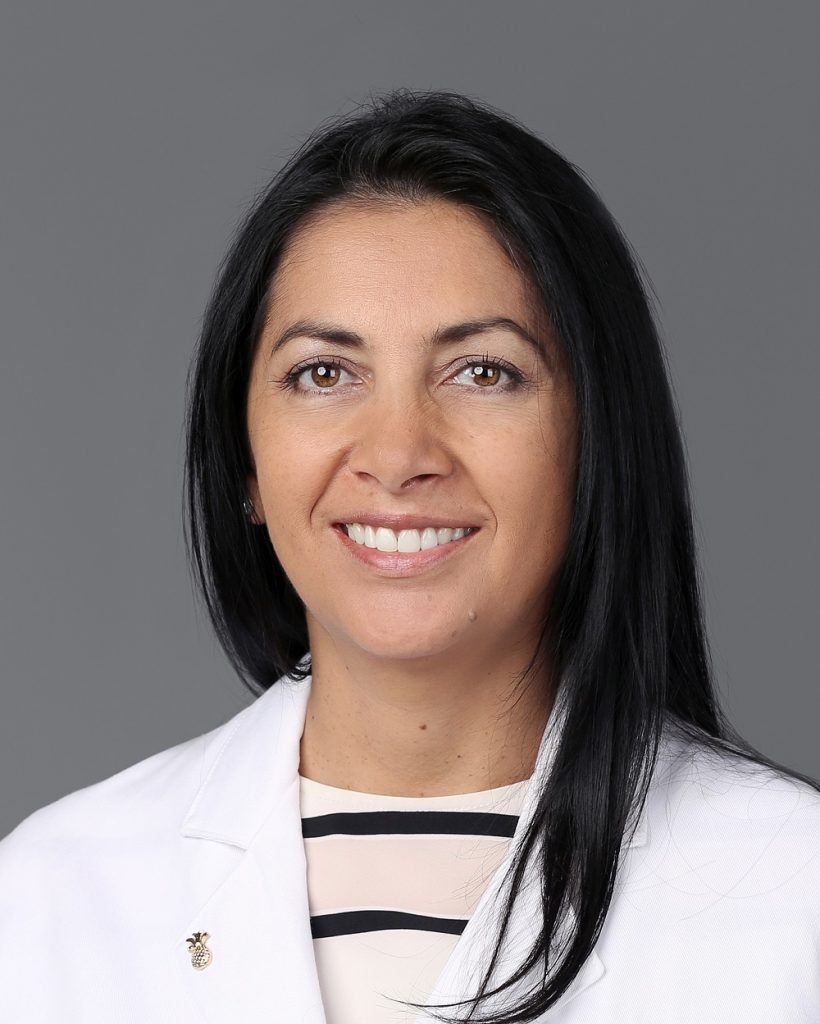
Research
Heart Failure: Advances in Diagnoses and Treatments Helping More People Lead Active Lives
4 min. read
Baptist Health Miami Cardiac & Vascular Institute
Although the prevalence of cardiovascular disease may have leveled off over the past few years, the incidence of heart failure has continued to rise because more people are surviving after heart attacks and because of the increasing number of elderly people.
Heart failure, which can happen at any age but more likely if you’re 65 or older, does not mean the heart stops. It’s actually when the heart is not pumping as well as it should be. With heart failure, the weakened heart can’t supply the body’s cells with enough oxygen and nutrient-rich blood.

Sandra Chaparro, M.D., cardiologist and director of the Advanced Heart Failure Program at Baptist Health Miami Cardiac & Vascular Institute.
Heart failure is a serious condition, and there’s no outright cure. But many people with heart failure lead full and active lives when the condition is managed with a range of available medications -- and when healthy lifestyle changes are adopted involving proper nutrition, weight management, being physically active and controlling risk factors. Heart Failure Awareness Week is observed Feb. 11-17 to help increase education about the severity of this disease.
Despite advances in treating and monitoring this condition, heart failure is often challenging to diagnose, explains Sandra Chaparro, M.D., cardiologist and director of the Advanced Heart Failure Program at Baptist Health Miami Cardiac & Vascular Institute.
Ejection fraction – a key step in diagnosing and treating heart failure -- measures the amount of blood the left ventricle of the heart pumps out to your body with each heartbeat. An ejection fraction below 40 percent means the heart isn't pumping enough blood and may be failing. A normal ejection fraction is about 60 percent to 75 percent.
“However, we can have a normal ejection fraction and you can still have heart failure,” said Dr. Chaparro. “While there's a long list of signs and symptoms, sometimes these patients don't know what to do. And they have done all the testing and their doctors have not addressed their shortness of breath. Frequently, the patient has seen multiple specialties and they still don't have a diagnosis. That's how they get to me.”
Also patients are often referred to Dr. Chaparro when other cardiologists have diagnosed patients with complicated, difficult-to-treat heart failure.
“For example, the patients are supposed to be on four medicines, and they are not tolerating the medicines, or the patients are still symptomatic despite what their cardiologists are doing,” said Dr. Chaparro. “That's when they consult me.”
The most common cause of heart failure is coronary artery disease (CAD), which occurs when arteries that supply blood to the heart muscle become narrowed by buildups of fatty deposits called plaque. Obesity, diabetes and high blood pressure are major risk factors for heart disease; however, those conditions can be modified and treated.
Faulty heart valves, damage to the heart muscles, and abnormal heart rhythm are other key risk factors. Survivors of heart attacks can also develop heart failure, which can be misdiagnosed or overlooked.
With heart failure, the heart makes two proteins, which are B-type natriuretic peptide (BNP) and N-terminal-pro-BNP (NT-pro-BNP). Levels of both of these in your blood go up when heart failure worsens, and goes down when it improves. A BNP blood test measures those two important levels. It’s able to spot heart failure more than 80 percent of the time.
Clinical Trials Help Advance Management of Heart Failure
Advances in diagnosing and managing heart failure are moving at a rapid rate. Even artificial intelligence (AI) is playing a role. In current research trials, AI is being used to enhance electrocardiograms to detect changes that can help predict heart failure in some patients, said Dr. Chaparro.
Recent clinical trials have also found that treatment with the obesity drug, semaglutide, sold under different brand names primarily for diabetics, can help patients with heart failure who suffer from “preserved” ejection fraction, which refers to patients with a normal ejection fraction who also have heart failure. Semaglutide is part of the “GLP-1 agonists” class of medications which may become more widely available for heart patients.
“There already has been research with GLP-1 agonists in patients with heart failure,” said Dr. Chaparro. “And we have seen benefits in terms of symptoms, and most recently we have cardiovascular outcomes. So, these medicines are not just for diabetics. They’re also going to be for heart failure patients.”
Miami Cardiac & Vascular Institute was the first center in South Florida to implant a new sensor in a heart failure patient that enables clinicians to better monitor and adjust therapy and medications remotely, without the need for additional office visits. Dr. Chaparro is on the steering committee for the trial. The Institute is one of 90 U.S. centers taking part in the global clinical trial. The system transmits pulmonary artery pressure and other vital data from home-based patients to their clinicians.
The Institute is also one of the U.S. centers to take part in the AIM HIGHer Clinical Trial to evaluate the safety and efficacy of “cardiac contractility modulation (CCM) therapy” in patients with heart failure and an ejection fraction of 40 percent to 60 percent. CCM involves an electrical stimulation treatment through an implant for symptomatic heart failure patients.
All of the advances in managing heart failure are very timely, as the rate of heart failure diagnoses is projected to climb over the next two decades.
“At the national level, the estimate has increased regarding the number of patients with heart failure from 6 million to 8 million people,” said Dr. Chaparro. “That's probably also a trend, in terms of the increasing population of the elderly who are 70 or oldeHealthcare that Cares
Related Stories
View All Articles
Second Heart Valve Replacement Returns Patient to Active Life
February 7, 2024
3 min. read

Miami Cardiac & Vascular Institute is First in S. Florida to Implant New Sensor System in a Heart Failure Patient as Part of Global Trial
November 1, 2021
3 min. read
